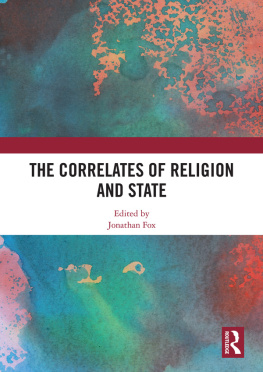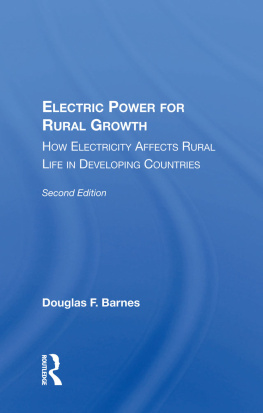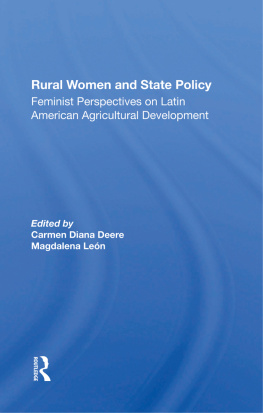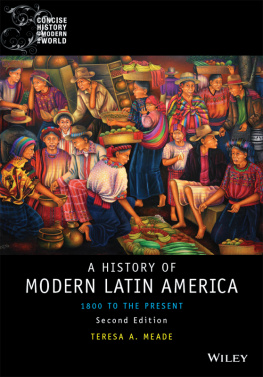First published 1994 by
Frank Cass and Company Limited
Published 2013 by Routledge
2 Park Square, Milton Park, Abingdon, Oxon OX14 4RN
711 Third Avenue, New York, NY 10017, USA
Routledge is an imprint of the Taylor & Francis Group, an informa business
Copyright 1990 Frank Cass & Co. Ltd.
All rights reserved. No part of this book may be reprinted or reproduced or utilised in any form or by any electronic, mechanical, or other means, now known or hereafter invented, including photocopying and recording, or in any information storage or retrieval system, without permission in writing from the publishers.
British Library Cataloguing-in-Publication Data
The challenge of rural democratisation: perspectives from
Latin America and the Philippines.
1. Rural communities. Political socialization
I. Fox, Jonathan, 1958 II. Journal of Development
Studies
306.2
Library of Congress Cataloging-in-Publication Data
The Challenge of rural democratisation : perspectives from Latin
America and the Philippines / edited by Jonathan Fox.
p. cm.
First published in a special issue of Journal of development
studies, v. 26, no. 4.
Includes bibliographical references.
ISBN 0-7146-3408-5
ISBN 978-0-714-63408-1 (hbk)
1. Political participationLatin America. 2. Political
participationPhilippines. 3. PeasantryLatin AmericaPolitical
activity. 4. PeasantryPhilippinesPolitical activity. 5. Latin
AmericaRural conditions. 6. PhilippinesRural conditions.
7. Rural developmentPolitical aspectsLatin America. 8. Rural
developmentPolitical aspectsPhilippines. I. Fox, Jonathan, 1958
JL966.C49 1990
323.042098dc20 90-38075
CIP
This group of studies first appeared in a Special Issue on The Challenge of Rural Democratisation: Perspectives from Latin America and the Philippines of The Journal of Development Studies, Vol.26 No.4
Publishers Note
The publisher has gone to great lengths to ensure the quality of this reprint but points out that some imperfections in the original may be apparent
by Jonathan Fox
The distribution of rural power in developing countries both shapes and is shaped by national politics. This volume addresses the question of why rural democratisation has proven to be so difficult across a wide range of national experiences. Transitions to elected civilian rule have recently been welcomed throughout the developing world, largely though not exclusively in Latin America. However, the relationship between such initial transitions and the longer-term consolidation of democratic systems of governance is far from clear. Elected civilian rulers have frequently failed to promote increased governmental accountability to the rural citizenry. While the implications are especially serious for countries with majority rural populations, authoritarian rural elites often retain significant political influence in predominantly urban developing countries, such as Brazil and Mexico.
Rural democratisation is an on-going process which develops, often unevenly, in the realms of both society and the state. Within civil society, it involves the emergence and consolidation of social and political institutions capable of representing rural interests vis--vis the state. Some may be specifically rural, such as peasant organisations, while others may be national associations, such as political parties, which develop a rural presence. For the state, rural democratisation requires effective majority rule as well as both formal and informal accountability to its rural citizens.
Rural democratisation cannot be separated from the challenge of democratising the state more generally. A focus on the rural political arena nevertheless raises a distinct set of analytical questions because the rural poor face particular internal and external obstacles when they attempt to hold the state accountable for its actions. In addition, the institutions usually thought to articulate and mediate the interests of civil society vis-a-vis the state, such as parties, trade unions, civic associations and the media, have a superficial or highly uneven rural presence in many developing countries.
This volume focuses on socio-political processes and institutions more than on specific rural development policies. Development analysts often conflate rural demoralisation with equitable rural development policy, confusing process with outcome.1 To understand why so few states are accountable to most of their rural citizens, we need a more systematic understanding of both the dynamics of rural collective action, and of how rural politics affect national politics and development policy. Some development theorists have begun to integrate rural politics into their explanations of economic policy-making. Bates [1981], for example, shows how the under-representation of food producer interests allows urban-based governments to offer low crop prices, leading in turn to low production.2 Nevertheless, much of the rural-urban bias debate tends to extrapolate rural power relations from an analysis of the distribution of the benefits of state intervention in the economy.3 To impute the balance of political power in the countryside from national economic policy outcomes neglects the dynamics of political factors which may well vary geographically, across policy areas or over time.4
The following articles explore both the limits and possibilities for rural democratisation in six diverse developing countries. This introductory chapter outlines the central analytical concerns which inform the volume and briefly describes the national case studies. It then examines three broad themes which emerge to varying degrees in all of the cases: the relationship between electoral and non-electoral politics; the concept of rural citizenship versus clientelism; and the articulation of direct and representative democracy.
RURAL COLLECTIVE ACTION AND NATIONAL POLITICAL CHANGE
While much of the literature on the transition to civilian rule emphasises, appropriately, the complex interaction between elite actors at key political turning points, analysis of the consolidation of democratic regimes requires the incorporation of a much broader array of political actors and processes. As ODonnell [1988: 283] put it, if political democracy is to be consolidated, democratic practice needs to be spread throughout society, creating a rich fabric of democratic institutions and authorities. This volume highlights one particularly intractable aspect of the broader problem of political practice and institution-building: the creation and sustenance of social and political institutions which effectively represent both the diverse and majority interests of rural people.
Our ability to grapple with this problematique is limited by the gap between most analyses of national and rural politics. The issue of democratisation has generated extensive literatures on both social movements and national politics; however, the convergence between levels of analysis, research questions and methodologies is often








